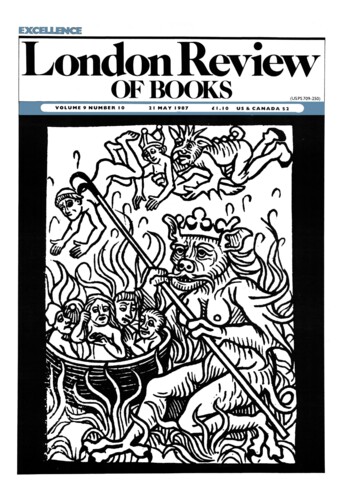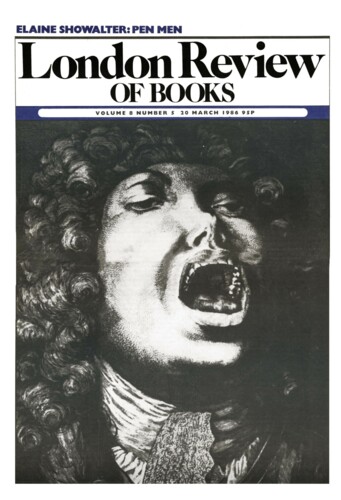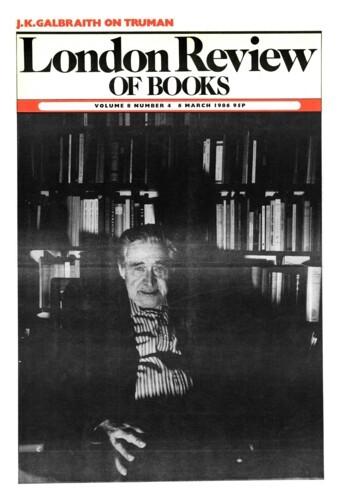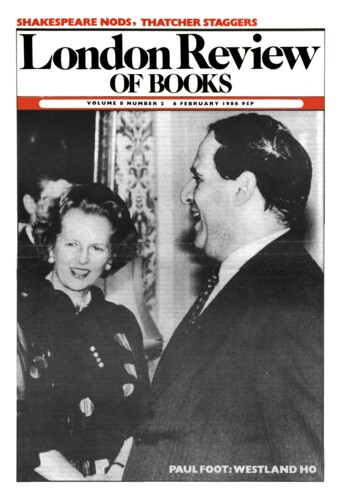Reputation
Peter Burke, 21 May 1987
Historians are always claiming that their particular topic of research has been unjustly neglected by their predecessors. The claim, usually exaggerated, occasionally turns out to have some justification. Yet it is rarely so obviously justified as in the case of Professor John Elliott’s rediscovery of a major Spanish statesman of the 17th century, the effective ruler of Spain for more than twenty years and the contemporary, the rival and the opponent of Cardinal Richelieu. A choleric man, obsessed with honour and reputation, it is just as well that Don Gaspar de Guzman, Count-Duke of Olivares, is unaware of the long shelf of books devoted to his rival, in painful contrast to the handful of studies concerned with himself. In fact, the handful can be reduced to three. One was written in the leisure hours of a conservative politician, Antonio Canovas del Castillo; another was the result of the possibly more abundant leisure of a physician, Dr Gregorio Marañon (whose patients included General Franco); and the third is Elliott’s own book.





